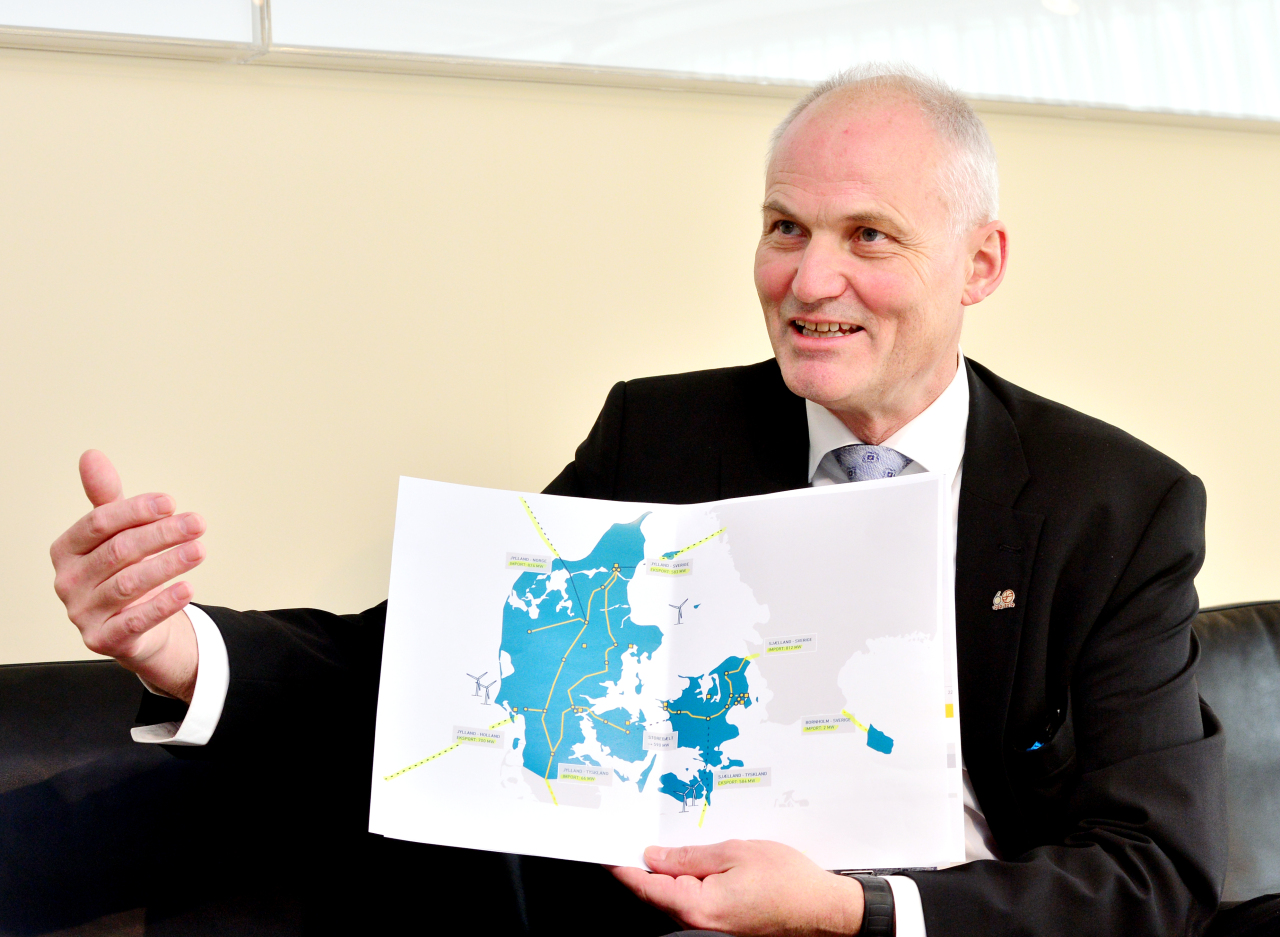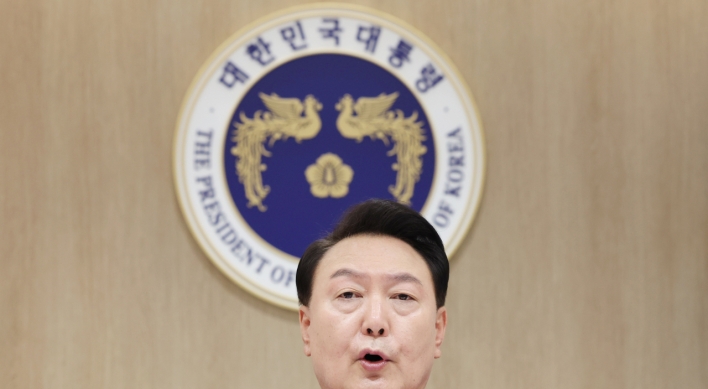[Diplomatic circuit] ‘Push for green energy pays off’
[Meet the diplomat] Danish ambassador discusses renewable energy, life satisfaction and ‘Parasite’
By Kim Bo-gyungPublished : Feb. 10, 2020 - 15:35
With alarm bells ringing louder than ever, warning the world of the grave impact of climate change, countries are increasingly turning to Denmark to learn from its expertise in renewable energy.
In an interview with The Korea Herald, Einar Jensen, the country’s new ambassador to South Korea, discussed how the European country managed to make such remarkable strides in green energy and in overall quality of life.
“When I look at Korea today, I think you have done a tremendously great job in developing your industry. You are moving nicely in the car industry, on electrical cars, hydrogen cars and battery capacity, areas where Denmark can learn from Korea,” Jensen said.
The interview took place Jan. 17 in the Fritz Hansen furniture showroom in Seoul, which opened last year in the presence of Danish Crown Princess Mary.
Sitting on an Egg Chair, one of Denmark’s best-known creations, designed for the 148-year-old company in 1958 by Arne Jacobsen, the envoy, who is versed in environmental issues, stressed that a switch to greener energy is necessary not just for the sake of the earth. It will bear economic fruits as well.
“Once we had renewable energy in place we got more investment. Big companies like Apple, Google, and Microsoft and so on, they want to invest in places where they can be sure (they have) access to 100 percent renewable energy,” he said.
“Be ambitious about the green agenda. It pays off.”
Jensen took the helm of the Danish Embassy in Korea following posts as ambassador to Tanzania and Bangladesh on top of some 10 years of environment-related experience with the Danish government.
According to Jensen, the Nordic county saw a new industry bloom -- windmill production -- as a result of its transition to eco-friendly energy.
Denmark’s success in realizing a green society did not come easy.
“We got a wake-up call in the 1970s, when the first oil crisis hit Denmark. … Our government back then took a decision. First of all, (we) focused on developing oil in the North Sea. Secondly, perhaps most importantly, we focused on renewable energy. So we started the journey focusing on wind, biomass, biogas and also solar energy,” Jensen said.
Holding up a chart illustrating Denmark’s Jan. 16 daily energy consumption, he added that renewable energy generates roughly 70 to 75 percent of the country’s daily electricity use.
“We are very proud to be able to do that (renewable energy) and think it is a great achievement,” he said.
Denmark’s drive for a green society is still in the works -- its ambitious goal is to become 100 percent renewable before 2030 on the back of an integrated network of wind and hydro power with neighboring countries.

Korea and Denmark inked the Green Growth Alliance in 2011 and have since worked closely to promote sustainability at home and on the international stage. The two countries established diplomatic relations in 1959.
On Danes’ high overall rates of satisfaction with life -- a stark contrast to Korea, which has the highest suicide rate among OECD nations -- the envoy pointed to multiple factors.
“Everyone wants to be happy. I don’t think there is one specific secret about it. I think it’s a combination of various things. It’s a good health care system, good and free education system, it’s a good pension system, it’s good system for providing support during unemployment,” he said.
“But creating a happy society, creating more space for families and kids is key. But of course, it comes with a cost. All of that is paid from tax.”
Since the initial World Happiness Report was published in 2012, Denmark has taken the top spot twice, in 2013 and again in 2016.
In reference to the steep class divisions portrayed in the award-winning Korean film “Parasite,” Jensen said a stable middle class was a contributing factor to Denmark’s high score on the happiness index.
“I must say I’m really taken aback by Korean film ‘Parasite.’ … It’s a great film, but it also tells me a lot about the two societies in Korea. You have the very upper class society and you have some poor,” Jensen said.
“Whenever you have a stable middle (class), you have a stable and good country. I think that’s another one -- you asked about happiness in Denmark -- (we have high levels of happiness) probably because we have a very big middle class.”
The new ambassador expressed hopes of bringing the two countries closer so they can make the most of their common strengths.
“I hope to achieve even closer collaboration between our two countries. … I think that we are both fast movers and innovative countries. When you mix two innovative partners, then something great comes out of it. So I think we can learn from each other.”
By Kim Bo-gyung (lisakim425@heraldcorp.com)












![[KH Explains] How should Korea adjust its trade defenses against Chinese EVs?](http://res.heraldm.com/phpwas/restmb_idxmake.php?idx=644&simg=/content/image/2024/04/15/20240415050562_0.jpg&u=20240415144419)






